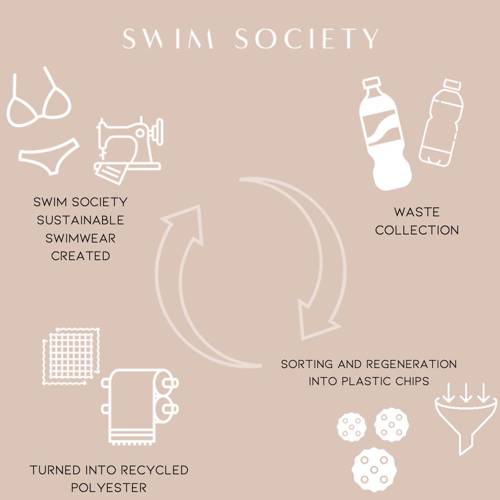CT: Is being a sustainable brand just a trend?
I think everything starts off as a trend. Right now, you’ve got so many influencers who are trailblazing their way through the sustainability world and exposing a lot of brands for things like greenwashing.
Greenwashing is where brands that are geared towards fast fashion are trying to be more “sustainable”. With a large company, it's really difficult for them to change their whole infrastructure to become more sustainable.
There’s actually a law in place where if your clothes are made in China or Vietnam, and then flown to Portugal to get a label sewn in, you can say ‘Made in Portugal’. Which is an example of how brands are greenwashing themselves to appear more sustainable when they’re not.
But people are digging, and they’re very interested in where their clothes are actually made now. Especially when things come to light about modern slavery and when garment workers aren’t being paid the correct amount for making clothes.
So I’d like to think it’s not a trend, and I hope laws will be enforced in the next 10 years. I hope there will be a legal clampdown on sustainability with big fashion brands because it's so damaging for the environment.

CT: You can’t have a brand putting labels on in the UK and saying ‘Made in the UK’. It isn’t right at all! Brands like Swim Society know the whole supply chain, and that is so important.
M: It’s really difficult because we find that lots of people are comparing us to other sustainable brands. We then look into these brands CSR (Corporate Social Responsibility) and what they’re actually doing to give back to the environment. Usually, it’s actually very minimal. We’re just a small team of 4 and we have so many initiatives to give back to the environment!
- Our swimwear is made from recycled consumer plastics.
- We plant a tree for every order to offset the carbon emissions.
- When we do campaigns abroad, we offset the carbon emissions of our flights.
Those are little things! We’re not even a year old and it’s more expensive, but it is the right thing to do. That’s where founders need to be a bit more empathetic and heart-led rather than financially-led. Obviously, everything needs to make financial sense for a business, but I think there’s a line where you’re making a profit, but you’re not actually damaging the environment to make clothes.







